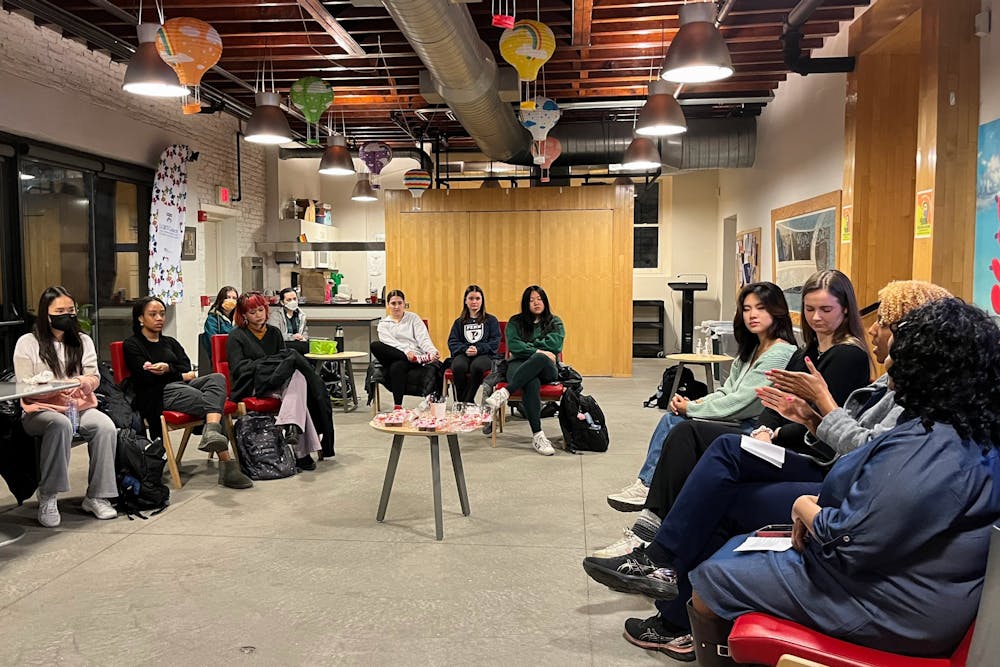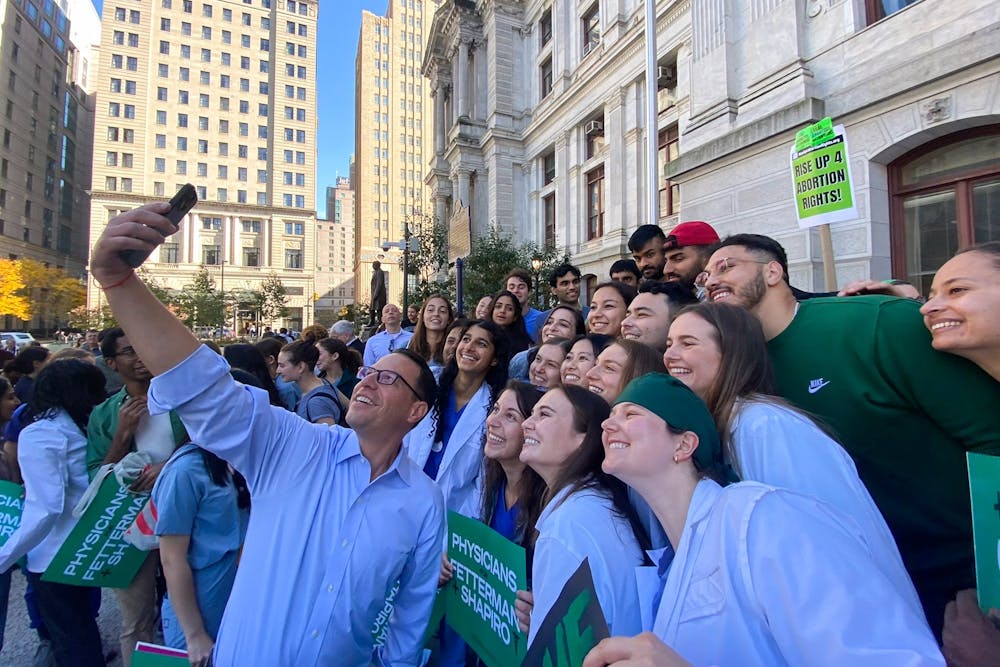
Penn Reproductive Justice hosted a Reproductive Health & Justice Panel in the Penn LGBT Center on Feb. 7 (Photo courtesy of Annabelle Jin).
Penn Reproductive Justice, a student organization founded by three undergraduate students in June 2022, has been increasing its presence on campus over the last several months.
Penn Reproductive Justice officially launched on June 24, 2022, immediately following the Supreme Court’s overhaul of abortion rights protections, according to co-founder and College sophomore Annabelle Jin. PRJ exists under the umbrella of the Penn Women’s Center, from which it obtains most of its funding outside of community grant applications.
Jin said that although the group was still in its early stages at the time, she and her co-founders — College junior Neha Shetty and College sophomore Antoilyn Nguyen — felt strongly that they needed to respond to the decision. All three students had interest in menstrual health, she said, but decided that they wanted to focus their efforts on reproductive justice.
“We realized Pennsylvania, particularly, was going to be a place of a lot of energy on this issue, because it's such a swing state,” Jin — who currently serves as PRJ’s education project lead — said, noting that the Pennsylvania legislature has made efforts to restrict abortion access in the state since the decision.
The group’s largest event thus far was a rally hosted in collaboration with Penn Medical Students for Choice and The University of Pennsylvania Carey Law School’s If/When/How chapter in October 2022. The rally had over 350 attendees and featured speeches from Pennsylvania Gov. Josh Shapiro — who was the Democratic nominee for the governorship at the time — and several medical students and faculty.
This semester, PRJ member and community engagement project lead Paola Naughton said that the group kicked off its speaker series with an event about the importance of reproductive justice in health care. Panelists included a medical student and faculty advisor representing Penn Medical Students for Choice.

Jin said her main focus in leading PRJ’s education project committee this semester has been on a menstrual health education project, which is being run in partnership with the Netter Center’s OurSpace program.
“[The Netter Center] already has their own sexual health education program in different affiliate schools, but we wanted to run menstrual health workshops. So this is the biology behind menstruation,” Jin said.
This includes information about period care, menstrual products with sustainable options, potential medical complications, gender-inclusive messaging, and "period stigma,” according to Jin. She and her committee members plan to facilitate about 15 workshops over the course of the semester.
Other significant projects currently being pursued by members of PRJ include an effort to increase access to emergency contraception on campus, as well as a broader contraceptive access project which aims to make various contraception options more readily available on campus.
Naughton said that she has been speaking with representatives from Student Health and Counseling about making emergency contraception — like Plan B One-Step — accessible through vending machines on campus, reflective of a policy at Boston University.

She has also been speaking with representatives from the SNF Paideia program as well as The Andrea Mitchell Center for the Study of Democracy about receiving sponsorship for a community conversation on abortion as a morally-charged political issue.
“We have these preconceptions of what the other side looks like, thinks like, how they vote. But the thing is, people have more nuanced views than you would expect,” Jin said. “So the goal of this abortion dialogue event would be to give people some ideas about how to navigate these difficult conversations.”
Shetty, the current political project committee lead for PRJ, said that in addition to broader dialogue events, the group wants to hold “restorative justice circles” to create a “trauma-informed” discussion space surrounding topics like abortion, reproductive health, sex education, and gender equity and discrimination.
“We really want to put lived experience and personal stories at the forefront of our work and just equip members of all levels of experience with the knowledge and resources to become more seasoned advocates within the space,” Shetty said.
Shetty’s committee is also working on advocacy centered around access to abortion and sexual education — which she noted is not mandated in Pennsylvania, as it is in other states. She said that students are also planning to create a public art exhibit “to put a face, a personality to the movement.”
“Ultimately,” Jin said, “our goal is to make reproductive health care accessible to people.”
The Daily Pennsylvanian is an independent, student-run newspaper. Please consider making a donation to support the coverage that shapes the University. Your generosity ensures a future of strong journalism at Penn.
Donate







